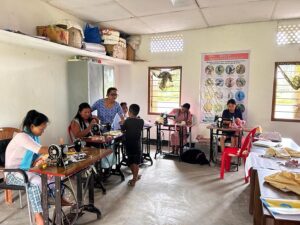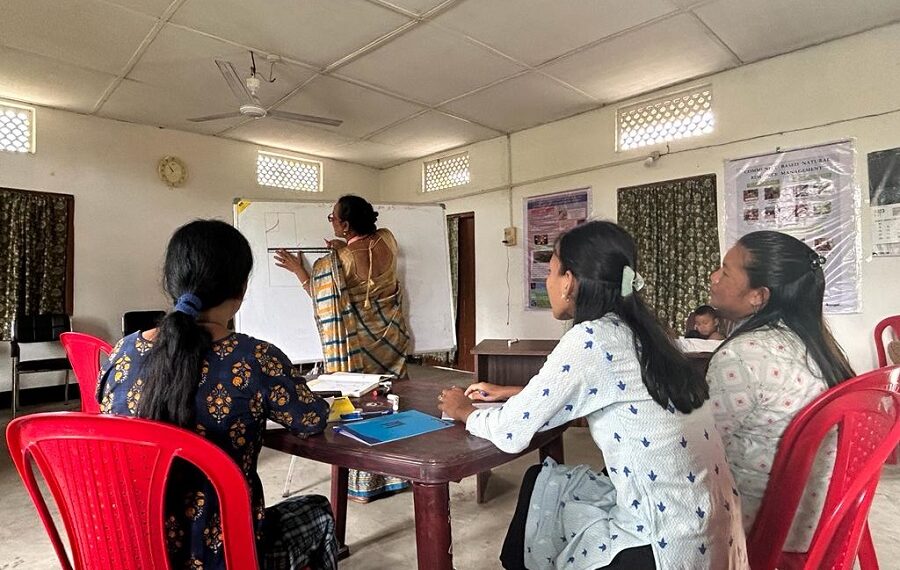GUWAHATI: In a concerted effort to reduce dependency on forest resources and empower indigenous tribal women in the Kohora-Karbi Anglong landscape, a biodiversity conservation organisation has been providing tailoring training to 35 women of the area in batches since 2021.
The biodiversity conservation organisation, Aaranyak, has selected seven skilled women in the region for advanced training in tailoring. The selected women are currently undergoing five days of intensive training each month at the Community Resource Center in Chandra Sing Rongpi Village, Kohora, in Karbi Anglong on the southern fringe of Kaziranga National Park.
The first batch of the training programme saw three Karbi women – Kareng Rongpipi, Larlyn Engtipi, and Sanjina Engtipi from Kohora River Basin Area and Difloo River Basin enthusiastically participate in the workshop. They underwent training on various aspects of tailoring, starting from machine care, measurement rules, and drawing measurements on chart paper, eventually progressing to cutting cloth and stitching blouses with intricate designs.
The training programme is being conducted under the guidance of experienced tailor, Mallika Ali from Jorhat, who will stay with the community for the next three months to impart her expertise.

“The minimum cost of stitching a simple-design blouse today is around Rs 350. Women in the Karbi ethnic group wear matching blouses with their Pini-Pekok (women’s clothing). It is also common for tailors to charge at least 250-300 rupees to stitch a kurta or pants,” an official of Aaranyak said.
In addition to the first batch, another group of four women with intermediate skills have also receiving training in the evening batch. They were taught basic tips on measurement, drawing and putting measurements on paper and cloth, and adding intricate design elements to kurtas. As their confidence grew, they cheerfully stitched blouses and kurtas, guided by their dedicated trainer.
Aaranyak’s community-based Natural Resource Management (NRM) initiative in Karbi Anglong district aims to safeguard biodiversity while promoting human well-being simultaneously.















